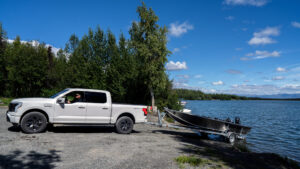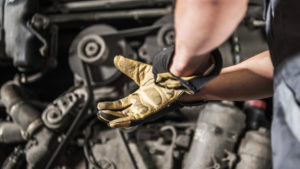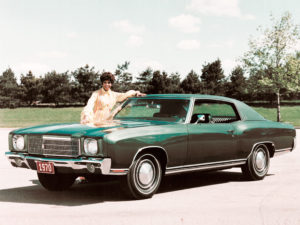Ford has produced 3 million face shields for health care workers in the last few weeks. Now, they’re expanding their COVID-19-related production efforts to include designing a new powered air-purifying respirator (PAPR), producing face masks, repurposing airbags as personal protective equipment, and scaling up production of coronavirus test kits.
3M partnership yields new respirator design
Designed, developed, and tested in partnership with 3M, the PAPRs will go into production at Ford’s Vreeland facility near Flat Rock, Michigan on Tuesday, April 14. They will be made by 90 paid UAW volunteers. Ford predicts that its production capability will allow it to make 100,000 or more respirators.
A new respirator design was formulated by experts from Ford in consultation with 3M.Photo courtesy of Ford Motor Company
According to a release, “Since late March, Ford manufacturing, purchasing and supply chain experts have been embedded at 3M manufacturing facilities to help increase production of urgently needed products. With this additional help, 3M and Ford were able to increase the output of PAPRs and N95 respirators at 3M’s U.S.
-based manufacturing facilities.”
The PAPR includes a hood and face shield to cover health care professionals’ heads and shoulders, while a HEPA filter system provides a supply of filtered air for up to 8 hours. The air blower system – similar to the fan found in F-150’s ventilated seats – is powered by a rechargeable, portable battery.
The development team expects the respirator design will meet the pending National Institute for Occupational Safety and Health limited-use protocol to respond to the COVID-19 public health emergency, with approval anticipated by the end of April. Once approved the PAPRs will be distributed by 3M. 3M and Ford will donate any profits they earn from the sale of the PAPR to COVID-19 related nonprofit organizations.
“We knew that to play our part helping combat coronavirus, we had to go like hell and join forces with experts like 3M to expand production of urgently needed medical equipment and supplies, said Jim Baumbick, vice president, Ford Enterprise Product Line Management. “In just three weeks under Project Apollo, we’ve unleashed our world-class manufacturing, purchasing and design talent to get scrappy and start making personal protection equipment and help increase the availability and production of ventilators.”
Face masks are being made in Michigan
Ford is also currently producing face masks at their Van Dyke Transmission Plant for internal use globally and pursuing certification for medical use. Production began earlier this week using materials provided by Ford’s roster of global suppliers.
There are 30 UAW paid volunteers making masks in the plant’s ISO Class 8 cleanroom, which is a controlled environment with extremely low levels of pollutants, enabling the safe production of face masks for medical use. Ford anticipates approximately 80 UAW paid volunteers will make masks as production increases.
Additionally, Ford has started providing manufacturing expertise to help scientific instrument provider Thermo Fisher Scientific quickly expand production of COVID-19 collection kits to test for the virus.
Ford has teamed with its airbag supplier to create reusable gowns.Photo courtesy of Ford Motor Company
Using airbags to create PPE
Ford is working with airbag supplier Joyson Safety Systems to create reusable gowns made from the material that is used to make Ford airbags. Production of the personal protective equipment is anticipated to reach 75,000 gowns per week by Sunday and scale up to 100,000 gowns for the week of April 19. By July 4, Joyson Safety Systems will be able to cut and sew 1.3 million gowns, which are self-tested to federal standards and are washable up to 50 times.
Ford worked with Beaumont Health in Detroit to design the gown pattern and test for sizing during fit and function trials. More than 5,000 gowns have already been delivered to the hospital.
Scaling up collection kits for COVID-19 tests
Ford is helping scale production of collection kits for COVID-19 tests at Thermo Fisher Scientific. The companies are utilizing Thermo Fisher’s Lenexa, Kansas facility and Ford’s Kansas City Assembly Plant engineering team.
Work continues on ventilator production
The ford and GE Healthcare initiative to produce ventilators continues. Work at Rawsonville Components Plant in Michigan is underway to transform a portion of the plant in to a production facility by April 20. Built by paid UAW volunteers, the goal is to produce 50,000 Model A-E ventilators by July 4.







